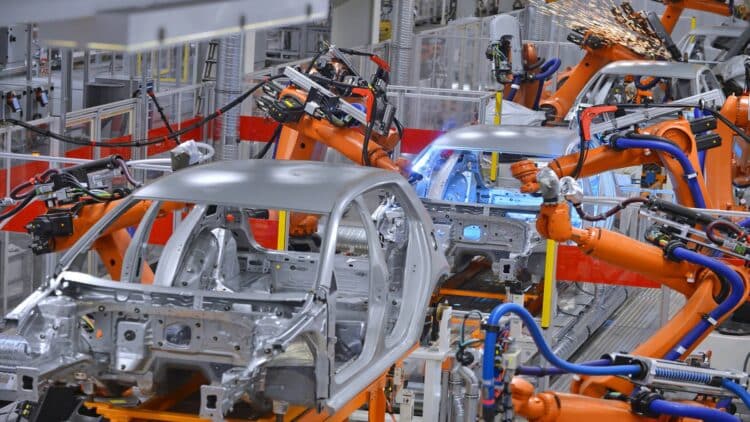A diplomatic tug-of-war between the Netherlands and China over a semiconductor company is about to wreak havoc on global car production. The Dutch government seized control of Nexperia in September, citing security concerns, but Beijing’s retaliation has created a supply chain nightmare that could shut down assembly lines worldwide. Automakers are scrambling to find alternatives as chip shortages loom large once again.
Nexperia seizure triggers Beijing’s swift export restrictions
The Dutch government seized Nexperia on September 30, citing “serious governance deficiencies” at the China-backed semiconductor producer. The Dutch government’s action has caused a major backlash, and China has retaliated by banning exports of Nexperia’s products, causing an “immediate disruption to the global supply chain that could cause global automotive production to stall,” according to Reuters.
Nexperia manufacturer, also has chip substrates production in the Netherlands, yet it does the assembly of its semiconductor packages in China, a model that has become completely disjointed. The company notified its customers on October 14 that Beijing had temporarily halted the export of certain items, then an alert from the European Automobile Manufacturers’ Association stated that it could no longer guarantee that the supplies would reach automakers.
The automotive industry faces immediate production threats
The timing couldn’t be worse for automakers already dealing with thin margins and fluctuating supply chains. Nexperia’s chips operate everything from switches to steering wheel controls, embedded in electrical systems and power management units that modern vehicles can’t function without.
Global automotive supply chains face unprecedented vulnerability
Dutch–Chinese dispute over chipmaker threatens to disrupt automotive supply chains because Nexperia produces hundreds of millions of chips that perform vital functions in vehicles worldwide. These aren’t luxury components—they’re essential semiconductors that control basic vehicle operations, and there’s no quick replacement available.
If there is a shortage of chips amounting to only 0.10% of the total amount of semiconductors, it can completely disrupt whole architectures for vehicles, according to sources. To replace parts, suppliers need to get certified, which can take months. But without Nexperia’s supplies, automakers are left staring at a nightmare, in which production lines can completely halt for small, crucial parts.
Tier 1 suppliers look for alternative chip supplies
Major automotive parts suppliers such as Bosch and Denso already integrate Nexperia’s components in pre-assembled parts that reach the automakers. This has a cascade effect, whereby automakers, regardless of how diverse their supply chains are, become susceptible to this vulnerability in the semiconductor supply chain.
“If the delivery of automotive chips does not resume shortly, it will disrupt the production of automobiles in the US and many other countries, having a ‘spill-over’ effect in various industries,” warned John Bozzella, the President and CEO of the Alliance for Automotive Innovation. The Alliance for Automotive Innovation represents automakers like General Motors, Toyota, Ford, Volkswagen, and Hyundai.
Japanese car manufacturers also face production risk
Katayama Masanori, Chairman, Japanese Automobile Manufacturers Association, made it clear that Nexperia’s chips are critical to making vehicles, and that shortages could disrupt global production for Japanese automakers, adding another level of complexity to a delicate situation for the automotive supply chain.
Critical supply chain vulnerabilities include:
- Production timeline: U.S. auto plants could feel the impact by November
- Component criticality: A 0.10% shortage can halt entire vehicle production
- Certification delays: Replacement components require weeks or months of approval
- Global reach: Disruptions affect automakers across multiple continents
The Nexperia crisis proves that geopolitics can weaponize global supply chains in an instant by converting normal disputes between states into economic warfare. The automotive sector, for instance, finds itself on the brink of collapse because it depends on tiny semiconductor components, making it susceptible to manufacturing networks that can fall apart so effortlessly, putting dealers around the world on the threshold of another painful chip shortage period.


